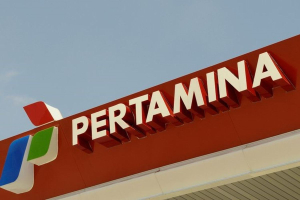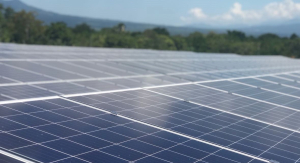Pertamina NRE to build bioethanol plant, optimize domestic resources
Pertamina New & Renewable Energy (Pertamina NRE), a subsidiary of State energy company PT Pertamina, has proven its seriousness in developing the bioethanol business, formally establishing cooperation with PT Sinergi Gula Nusantara (SGN) and the East Nusa Tenggara (NTT) provincial administration on Thursday, September 5, 2024.
The agreement with SGN was signed by Pertamina NRE Chief Executive Officer John Anis and SGN President Director Mahmudi, while the deal with the NTT province was signed by John Anis and NTT Governor Ayodhia G. L. Kalake.
“This cooperation is a good strategic step in bioethanol development in Indonesia. We are optimistic that the collaborations between Pertamina NRE and SGN and the NTT Provincial Administration will produce a positive impact in accelerating the national energy transition. Pertamina NRE has been focusing on the provision of new and renewable energy, one of which is through bioethanol,” John Anis said in a statement on Monday, September 9, 2024.
Pertamina NRE and SGN agreed to work together to build a bioethanol plant in Glenmore, Banyuwangi Regency, East Java, by utilizing molasses raw materials (a by-product of processing sugar cane for sugar) at the Glenmore sugar factory. The bioethanol plant is planned to have a production capacity of 30,000 kilo liters per year or equivalent to 100 kilo liters per day (KLPD). This project is part of the short-term plan to develop the bioethanol business.
“We welcome the cooperation plan of PNRE. This is in line with SGN's commitment to continue supporting the government's efforts to develop bioethanol production as stated in Presidential Regulation 40/2023,” Mahmudi said.
In the agreement with the NTT Provincial administration, Pertamina NRE will develop bioethanol in the province. This cooperation is included in Pertamina NRE's medium-term strategy. This cooperation is expected to explore the potential for bioethanol development through the identification of potential land that can be utilized for energy crops in NTT such as sugar cane, corn, cassava, and others.
Not only does it support the Indonesian government's energy transition program, this program will also provide benefits for regional progress and community welfare and support increased agricultural productivity.
“Thank you for the good initiative. We hope that bioethanol development in NTT can be a strategic step to benefit regional progress and the welfare of local communities in NTT, especially since NTT is known to be geographically suitable for energy crops such as corn that PNRE needs,” Governor Ayodhia said.
The application of bioethanol as a mixture for fuel oil has been started by Pertamina through the launch of the Pertamax Green 95 product in 2023. This step is in line with the government's plan to reduce Greenhouse Gas Emissions (GHG) in the transportation sector through the provision of Biofuels.
The government encourages the use of bioethanol as a transportation fuel with the hope that this step can reduce national fuel imports, create new jobs, increase GDP, and contribute to reducing emissions in the long run. This step is in line with Presidential Regulation No. 40/2023 on the Acceleration of National Sugar Self-Sufficiency and the Provision of Bioethanol as Biofuel.
Energy transition commitment
Vice President for Corporate Communication of PT Pertamina, Fadjar Djoko Santoso, added that Pertamina's role in leading the energy transition includes developing the ecosystem so that the implementation of the energy transition runs thoroughly.
“To achieve the energy transition target, Pertamina cannot just walk alone. Partnerships with various parties, both government and private institutions, will encourage the achievement of the Indonesian Government's Net Zero Emission target by 2060, or even sooner,” Fadjar said.
In developing the bioethanol business, Pertamina NRE in the future will become a provider of bioethanol which will be processed and marketed through PT Pertamina Patra Niaga. As part of Pertamina Group, Pertamina NRE is committed to promoting clean energy initiatives as an integral part of the implementation of environmental, social and governance (ESG) aspects to support the Sustainable Development Goals, as well as supporting the energy transition to achieve net zero emission (NZE) targets.
Already have an account? Sign In
-
Start reading
Freemium
-
Monthly Subscription
30% OFF$26.03
$37.19/MonthCancel anytime
This offer is open to all new subscribers!
Subscribe now -
Yearly Subscription
33% OFF$228.13
$340.5/YearCancel anytime
This offer is open to all new subscribers!
Subscribe now





